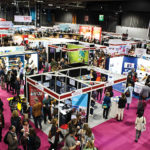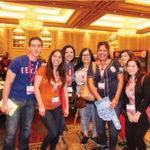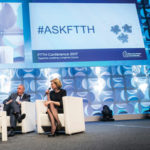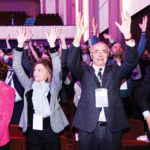A unique forum that invites top dementia researchers from all over the world to discuss findings and work toward innovative treatments, the conference was held in Vancouver last year, attracting 4,333 academic and industry researchers and 112 exhibitors from 68 countries.
Challenges
With such a big show and an even bigger international audience, the Alzheimer’s Association faces the challenge of representing the whole wide world. “One of the most exciting aspects of AAIC is the commitment to being truly international,” said Darren Mendola, CMP, the Alzheimer’s Association’s senior director of conference services. “As such, the conference varies locations to ensure access to an international audience.”
That can create a whole new variety of stresses, for both planners and attendees, but Mendola thinks it’s worth it. He said: “The value of bringing together leaders in Alzheimer’s research from around the globe outweighs the navigation of time zones, languages, workplace cultures, and financial investments.”
Another challenge for the Alzheimer’s Association is understanding the science of science. “The Alzheimer’s research environment directly impacts our attendance,” Mendola said. “If the field is moving swiftly, if therapies or detection tools are getting nearer to public availability, our attendance may increase organically. However, the pace of science is not always predictable, so we always have to be creative and strategic in our marketing communications efforts and program development.”
The association also has to be careful when selecting its sponsors. “Due to the focus on scientific research, our pool of sponsors and exhibitors is specific,” Mendola said. “AAIC sponsors and their products are thoughtfully chosen to ensure any product being represented is legitimate and has a demonstrated scientific method and results.”
Initiatives
At AAIC 2013, the Alzheimer’s Association will work closely with its Massachusetts chapter to conduct a free Community Research Forum that will be open to the public. “So they can get their Alzheimer’s questions answered,” Mendola said. “We’re also collaborating with the chapter on a one-day conference for professional caregivers, such as nurses, social workers, activity directors, counselors, occupational therapists, and recreational therapists.”
There will also be a bigger focus on going green at AAIC this year, “through expanded recycling [programs] and changes in our printing activities,” Mendola said, “such as trying to get away from printed program books and abstracts, putting more of our materials online, and emphasizing the use of our new mobile app — which is also a lot more convenient than carrying around a lot of printed books.” The Alzheimer’s Association will also help attendees improve their health by providing more nutritious food options, hosting a “fun run” along the outskirts of Castle Island in South Boston, and offering daily morning yoga sessions.
The association has also been working to include more government involvement and interaction with AAIC “because of the vital role governments play in advancing Alzheimer’s research,” Mendola said. “Fostering collaboration among researchers is an important goal of AAIC. We want attendees to have access to, share, and discuss the absolute latest and most up-to-date research trends and results.”
Convene’s Pre-Con/Post-Con series asks meeting planners about their challenges and how they intend to address them (Pre-Con), and then circles back around after the meeting has occurred (Post-Con) to see how well they worked out.




